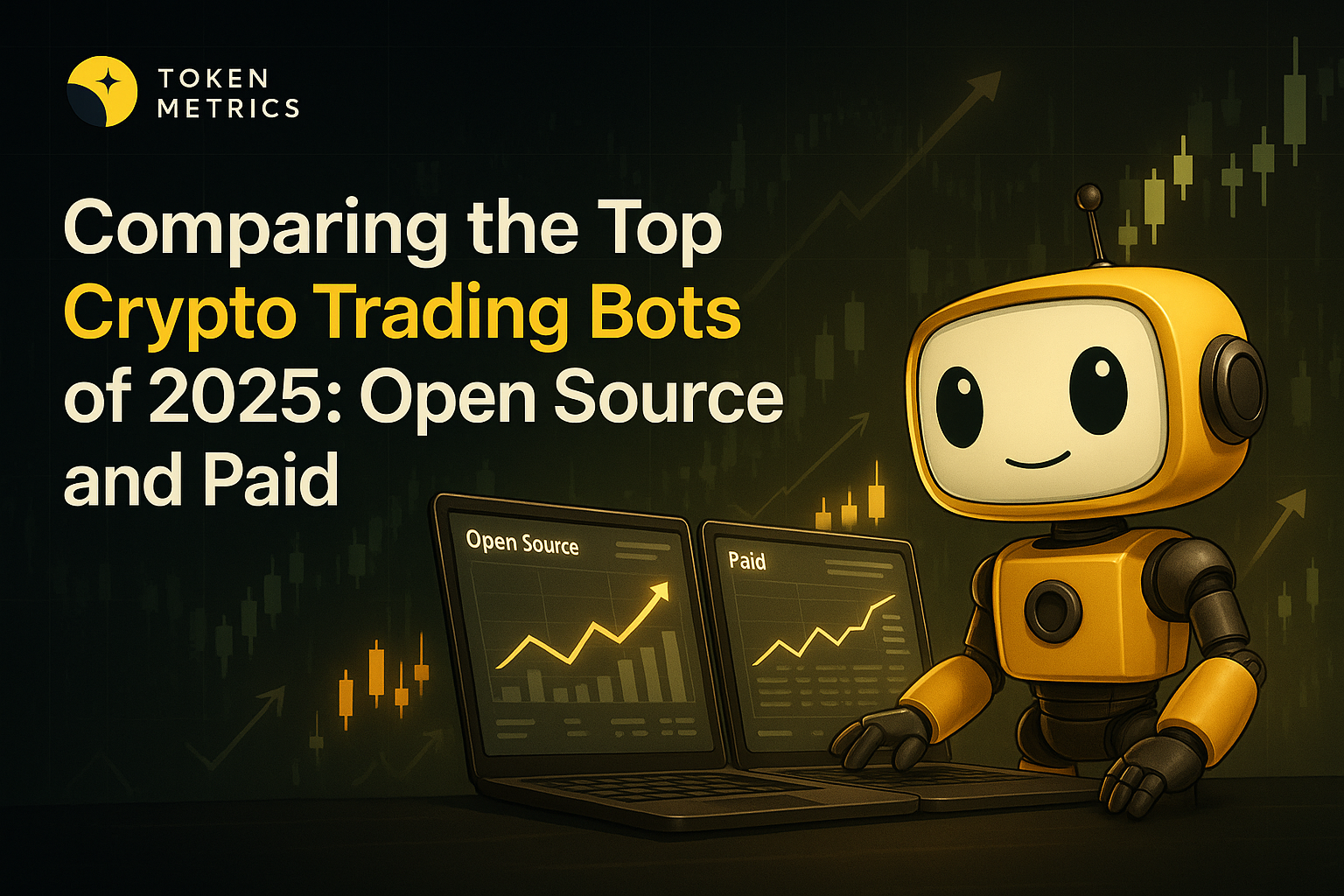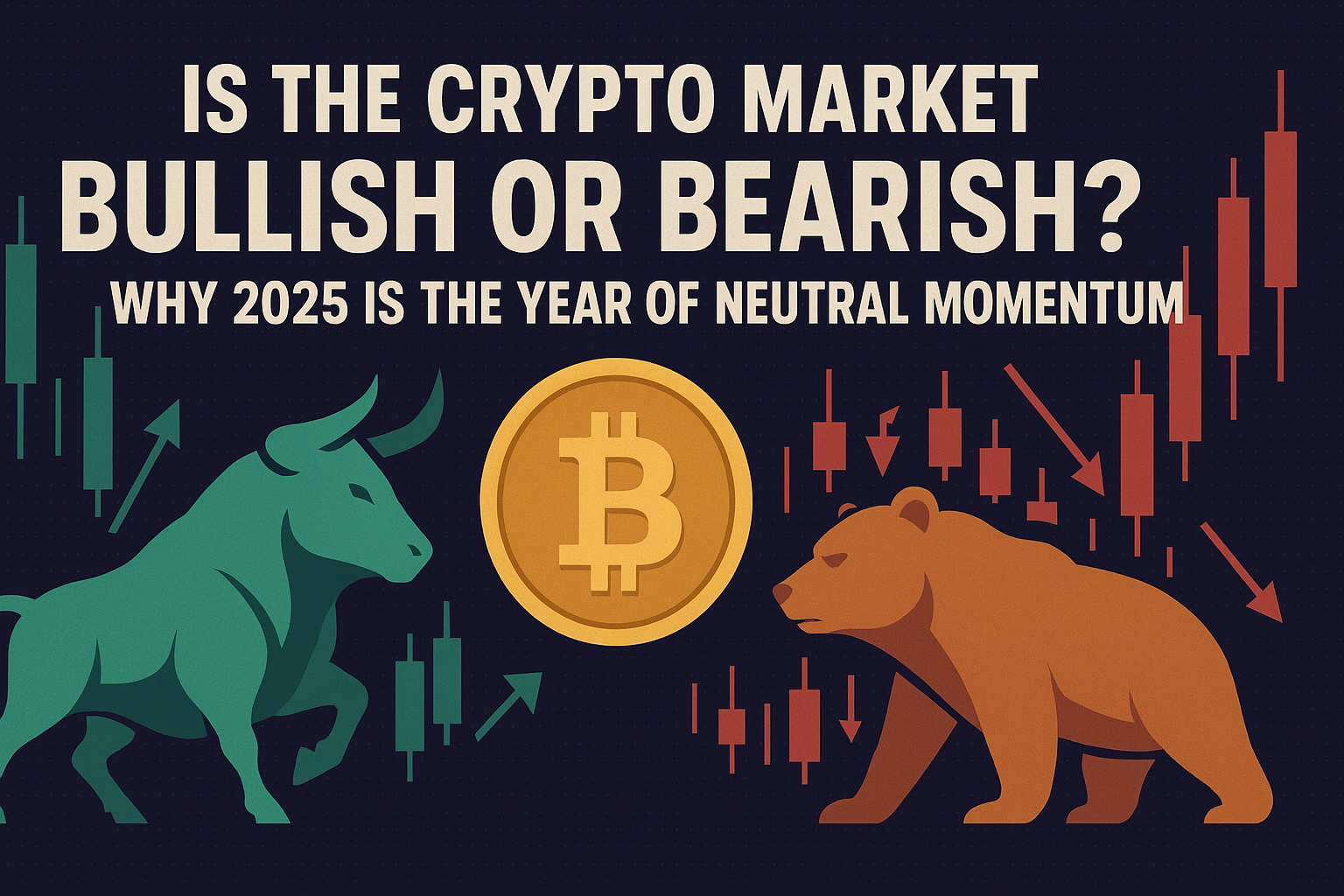Comparing the Top Crypto Trading Bots of 2025: Open Source and Paid

The landscape of crypto trading is rapidly evolving, and as we move into 2025, automation through trading bots remains one of the most transformative trends. Both newcomers and experienced traders are turning to crypto trading bots to streamline processes, manage risk, and take advantage of around-the-clock markets. But with the explosion of open source and paid options, how do you identify which bots merit your attention? In this deep dive, we’ll compare the leading crypto trading bots of 2025—balancing tech, usability, and transparency—so you can navigate this essential toolkit with confidence.
What Are Crypto Trading Bots and How Do They Work?
Crypto trading bots are software programs designed to automate buying, selling, and portfolio rebalancing in cryptocurrency markets. Leveraging predefined rules, technical indicators, or advanced machine learning, these bots execute trades faster and without the emotional bias that can affect manual trading. Bots can operate 24/7, responding instantly to market changes and often employing sophisticated strategies that would be challenging to replicate manually.
In 2025, the variety of bots available spans from simple rule-based systems to complex AI-driven agents. They connect to crypto exchanges—such as Binance, Coinbase, or Kraken—through API integrations. Most bots allow users to customize strategies, set risk parameters, and monitor performance through intuitive dashboards.
Open Source vs. Paid Trading Bots: Key Differences
The difference between open source and paid crypto trading bots often comes down to transparency, control, and ease of use.
- Open Source Bots: These bots offer transparency and community collaboration. Users can audit the code, ensure no hidden functionality exists, and even tweak algorithms to better suit their needs. Popular examples include Freqtrade and Gekko. While these bots are typically free, they require more technical expertise to set up and maintain, especially when connecting APIs or deploying custom strategies.
- Paid (Commercial) Bots: Premium bots bundle user-friendly interfaces, customer support, and often proprietary algorithms. Services like 3Commas, Cryptohopper, and Bitsgap lead this category by offering plug-and-play features, cloud hosting, and advanced automation. While they have subscription fees, they cater to users who prefer convenience, security, and ongoing updates over full source code access.
Choosing between open source or paid options in 2025 depends on your technical skill, needs for customizability, trust level, and budget allocation for trading infrastructure.
Trending AI and Automation Features in 2025
As AI integrates deeper into crypto trading, both open source and paid bots have seen an upgrade in intelligence and adaptability:
- Natural Language Strategy Creation: Some advanced bots allow users to describe trading strategies in plain language, which the AI then translates into executable code.
- Reinforcement Learning Algorithms: AI-driven bots in 2025 commonly use reinforcement learning, optimizing their strategies based on real-time outcomes and historical market data.
- On-Chain Data Integration: The best bots can process on-chain metrics—such as wallet movements and DeFi protocol activity—adding fresh market context to traditional technical indicators.
- Risk-Aware Trade Execution: Automated position sizing, stop-loss rules, and volatility analysis are standard, reducing exposure in turbulent conditions without constant user intervention.
- Multi-Exchange and Cross-Asset Support: Top bots can manage portfolios across several trading platforms, balancing trades among Bitcoin, Ethereum, altcoins, and even tokenized real-world assets.
This evolution assists users at all experience levels, turning AI-powered bots into leading research and automation companions rather than just passive trading engines.
Top Open Source and Paid Crypto Trading Bots in 2025
Let’s spotlight a few prominent options, emphasizing their core features without bias:
- Freqtrade (Open Source): Known for its robust backtesting engine, extensive strategy customization, and active GitHub community. Ideal for tech-savvy users who value flexibility and transparency.
- Gekko (Open Source): A lightweight bot that runs on Node.js and connects to multiple exchanges. Supports plugin architecture but may lack advanced AI integrations found in newer bots.
- Hummingbot (Open Source): Specializes in liquidity mining and market making, enabling users to deploy custom bots with cloud or local hosting. Actively maintained with built-in analytics.
- 3Commas (Paid): Offers smart trading terminals, grid bots, trailing features, and AI-powered portfolio management. Designed for accessibility, cloud-based operation, and mobile controls.
- Cryptohopper (Paid): Boasts AI strategy creation (“Hopper AI”), paper trading, and a marketplace for community-generated strategies. Focuses on low-latency, round-the-clock trade automation.
- Bitsgap (Paid): Supports arbitrage, futures, and spot trading across several exchanges. Known for quick setup, portfolio analytics dashboards, and dynamic grid bots suitable for volatile markets.
Each of these solutions appeals to different user profiles and ambitions. Some prioritize full-stack transparency and algorithmic control (the open source camp), while others seek set-and-forget usability, support, and feature-rich tools (the paid category).
Best Practices for Choosing Crypto Trading Bots
Whether you gravitate toward open source innovation or streamlined paid solutions, consider the following best practices:
- Security First: Audit the bot’s access permissions. Use secure API keys, track data privacy, and avoid sharing credentials.
- Community and Support: Evaluate the strength of the bot’s user community or customer support. Active development and transparent documentation are critical for troubleshooting and growth.
- Strategy Flexibility: Choose bots that support the indicators and logic you require, whether it’s AI-driven strategies or manual rules.
- Backtesting Capability: Review bots’ simulation features, allowing you to test algorithms on historical data before live implementation.
- Integration and Scalability: Ensure compatibility with your desired exchanges, assets, and portfolio size. Consider future-proofing with multi-exchange and cross-asset support.
The right research, careful strategy testing, and a responsible approach to automation ensure bots enhance your trading—not replace foundational knowledge or risk management.
Enhance Your Trading with Token Metrics
Token Metrics offers real-time prices, trading signals, and on-chain insights to help you make informed decisions. Start Trading Smarter Today
FAQ: Crypto Trading Bots in 2025
Are crypto trading bots legal?
Using crypto trading bots is legal in most jurisdictions. However, exchanges may have their own rules, so always review the terms of service for the platforms you use. Compliance with local laws regarding crypto assets is also important.
Can I use trading bots with any crypto exchange?
Most major exchanges provide APIs that allow trading bots to connect and execute trades. However, the level of support and functionalities may vary. Always verify the bot’s compatibility with your chosen exchange.
Do I need to know coding to use crypto trading bots?
Not necessarily. Many paid trading bots offer user-friendly interfaces requiring no coding skills. Open source bots often need technical setup and strategy tweaks, so basic programming knowledge can be helpful for those options.
Are AI-based bots better than rule-based bots?
AI-based bots can adapt to changing market conditions and process complex data in real time, offering advantages in dynamic environments. However, success depends on the implementation, underlying data, and usage. Rule-based bots can be more predictable and transparent.
What are the main risks of using crypto trading bots?
Risks include technical failures, API connection issues, untested algorithms, security breaches, and unpredictable market behavior. It’s important to use secure practices, monitor performance, and regularly audit bot activities.
Disclaimer
This article is intended for informational and educational purposes only. It does not constitute investment advice or recommendations of any kind. Always conduct your own research and consult with financial professionals before engaging in any cryptocurrency trading or investment activities.
Create Your Free Token Metrics Account

.png)




%201.svg)
%201.svg)


%201.svg)










.svg)




.png)